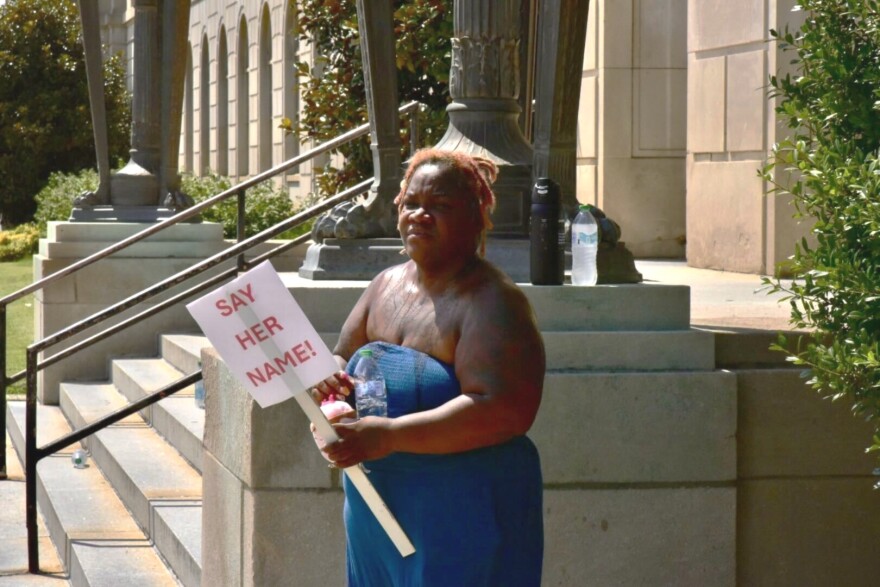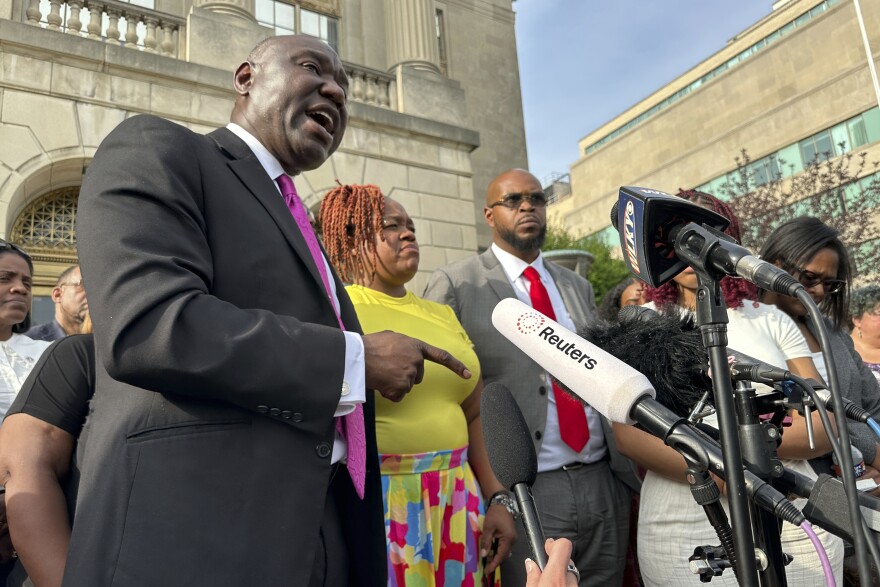A federal judge handed down a sentence of 33 months in prison and three years of supervised release for former Louisville police detective Brett Hankison.
Hankison was one of the officers who fired his weapon during the deadly raid on Breonna Taylor’s apartment in 2020. While his bullets didn’t hit anyone, prosecutors accused Hankison of firing blindly through a covered window, endangering Taylor and her neighbors. Hankison was convicted last year of violating Taylor’s Fourth Amendment rights.
He was previously acquitted of state-level wanton endangerment of Taylor's neighbors and his first federal trial ended in a mistrial after the jury couldn't agree on a verdict.
Last week, the U.S. Department of Justice filed a memo asking that Hankison get just one day in prison. They also questioned whether the ex-LMPD officer should have been arrested in the first place. The DOJ prosecuted Hankison under former President Joe Biden, but the attorneys on the case now were all appointed by President Donald Trump.
U.S. District Court Judge Rebecca Grady Jennings criticized that memo Monday as she laid out Hankison’s sentence. She called the DOJ’s comments “inappropriate.”
The Justice Department, she said, implied the violation of Taylor’s rights was “merely an inconsequential crime for which nobody needed to be held accountable.”
In addition to 33 months in prison, Grady Jennings sentenced Hankison to three years of parole after he gets out of prison, with mandatory mental health treatment.
Attorney Lonita Baker, who’s part of the team representing Taylor’s family, thanked the judge for taking the time to listen to victims and pushing back on the DOJ. Baker told reporters outside the courthouse Monday evening that the family feels it got some amount of justice.
“We were here today for a just sentence,” she said. “And while 33 months in prison is not enough, it’s more than what they were asking for.”

Baker also thanked protesters who have been demanding justice for Taylor since the summer of 2020. The attorneys representing the family led protesters who gathered outside the courthouse in chants of “Say her name.”
Four people were arrested outside the hearing for blocking traffic and kicking vehicles outside the courthouse, according to police.
Taylor’s family shares heartache
During the sentencing hearing, Grady Jennings heard from Taylor’s family, as well as Hankison’s friends and family, who showed up to be character witnesses and ask for leniency.
Tamika Palmer, Taylor’s mother, gave an emotional victim impact statement. She said Taylor’s death at the hands of police robbed her of “my joy, my future, my life.”
Palmer pushed back on comments made by DOJ attorneys during the hearing that Hankison’s actions were just a mistake.
“It was reckless,” she said. “It was negligent, and it was rooted in a system that dehumanizes Black lives.”
“I pray you never know the pain of standing in front of the world and begging for anyone to do what’s right,” she told the judge.
The judge also heard from other family members, including Taylor’s cousin, two aunts and her younger sister, Juniyah Palmer. All asked her to give Hankison the maximum possible sentence.
Some of the LMPD officers Hankison used to work with spoke on his behalf. So did his daughter, who told Grady Jennings she wanted her dad to be able to attend her graduation from nursing school next May.
The judge also heard arguments from the DOJ and Hankison’s defense attorneys on why the former detective’s sentence should be reduced. In federal court, judges follow a formula from the U.S. Sentencing Commission, which was created by Congress to try and reduce sentencing disparities.
The DOJ — the prosecution in this case — and the defense attorneys often found themselves arguing together for a lighter sentence. Both sides agreed Hankison shouldn’t serve prison time because of the likelihood he would be targeted. They also argued for mitigating factors, like the fact that officers were fired on first by Taylor’s boyfriend as they attempted to break her door down.
Grady Jennings rejected many of the attorney’s arguments, but agreed to significantly reduce the possible maximum sentence by changing what’s called the “cross reference.”
In the sentencing report, the U.S. Probation Office recommended Hankison get 11-14 years in prison, using the sentencing guidelines for attempted murder as the cross reference. Grady Jennings changed that reference point to aggravated assault, reducing the maximum to six years.
Despite that concession, the judge rejected arguments from the DOJ seeking to downplay Hankison’s crime.
Grady Jennings said she was “startled” that Hankison’s gunfire did not hit any of Taylor’s neighbors or his fellow officers. She also said the DOJ’s arguments seemed to imply the case was a “political issue.”
The DOJ attorneys who argued alongside Hankison’s defense on Monday are part of a department that’s been reshaped by Trump.

This fact didn’t go unnoticed by the family’s attorney Ben Crump, who thanked former Attorney General Merrick Garland and former Assistant Attorney General Kristen Clarke in his comments after the sentencing.
“We are astonished about what we saw in the courtroom, where the prosecutor seemed to argue more for the defendant, Brett Hankison, than they argued for the victims, the family of Breonna Taylor,” he said.
Asked by a reporter whether they were worried that Trump might pardon Hankison, attorneys and supporters of Taylor’s family said they wanted to focus on their win first.
This story was updated.






